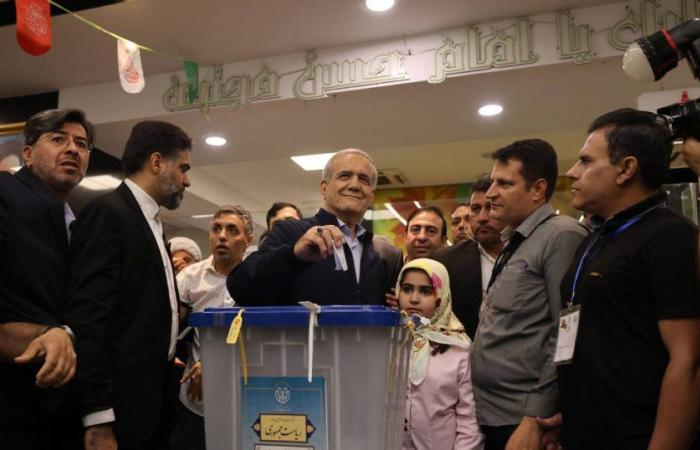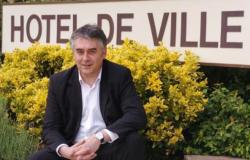
The two candidates with opposing profiles are leading the results this Saturday, June 29. It has been nearly twenty years since a presidential election in Iran was played out in the second round.
The reformer candidates Massoud Pezeshkian and ultraconservative Saïd Jalili have qualified for the second round of the presidential election in Iran, the Iranian authorities announced this Saturday, June 29, the Ministry of the Interior announced this Saturday, June 29 after the first tour which took place the day before. “None of the candidates were able to obtain an absolute majority of votes” in the first round and, “therefore, the first and second candidates” will be decided by a second round on July 5, Mohsen Eslami, the spokesperson for the elections department at the ministry, told the press.
Out of 14 presidential elections held since the Islamic Revolution of 1979, only one has so far been decided in the second round, in 2005.
This Saturday around 9:45 a.m. local time, out of 19.07 million ballots counted, MP Massoud Pezeshkian received 8.30 million votes and Saïd Jalili, former nuclear negotiator, 7.19 million. They were clearly ahead of the conservative President of Parliament, Mohamad Baquer Ghalibaf, credited with 2.68 million votes. Far behind, the fourth candidate, Mostafa Pourmohammadi, the only cleric in the running, received 158,314 votes. The authorities did not give any figures on participation, although some 61 million voters were called to vote on Friday.
The election was hastily called after conservative President Ebrahim Raisi was killed in a helicopter crash on May 19. It is being watched closely abroad as Middle Eastern heavyweight Iran is at the heart of several geopolitical crises, from the war in Gaza to the nuclear issue, in which it opposes Western countries.
The highest authority of the Islamic Republic, Ayatollah Ali Khamenei, called on voters on Friday to “take voting seriously and participate in it”. Opponents, particularly those from the diaspora, had called for a boycott of the vote. A strong participation was desired by the authorities while the 2021 presidential election, for which no reformer or moderate candidate had been authorized to compete, was marked by a record abstention of 51%.
Very different candidates
If a second round were confirmed between Massoud Pezeshkian and Saïd Jalili, it would pit two personalities with very different profiles and programs against each other.
Aged 69 and a surgeon by profession, Massoud Pezeshkian is a member of parliament for Tabriz, the major city in northwestern Iran, and has limited government experience, including a position as health minister from 2001 to 2005 in the reformist government of Mohammad Khatami. He has become known for his outspokenness, having not hesitated to criticize the government during the protest movement sparked by the death in custody of Mahsa Amini in September 2022. He also advocates a warming of relations between Iran and Western countries, led by the United States, in order to lift the sanctions that are severely affecting the economy.
Conversely, Saïd Jalili, 58, is a supporter of an inflexible policy towards the West. He demonstrated this during the six years in which he led negotiations on Iranian nuclear power, between 2007 and 2013. Throughout his career, Saïd Jalili accessed key positions within the Islamic Republic with the confidence of Supreme Leader Ayatollah Khamenei. He is currently one of its two representatives on the Supreme National Security Council, the highest security body in the country.
Without publishing the first results, the press took a position on Saturday morning according to its political attachment. “Long live hope”headlined the reformist newspaper Sazandegi by publishing a photo of Massoud Pezeshkian, while the government daily Iran called for “vote for the authority of Iran”.
Whatever the result, the election is expected to have limited repercussions because the president has limited powers: he is responsible for implementing, at the head of the government, the broad political guidelines set by the supreme guide, who is the head of state.
Update : at 10:15 a.m., with the qualification of the two candidates for the second round.





